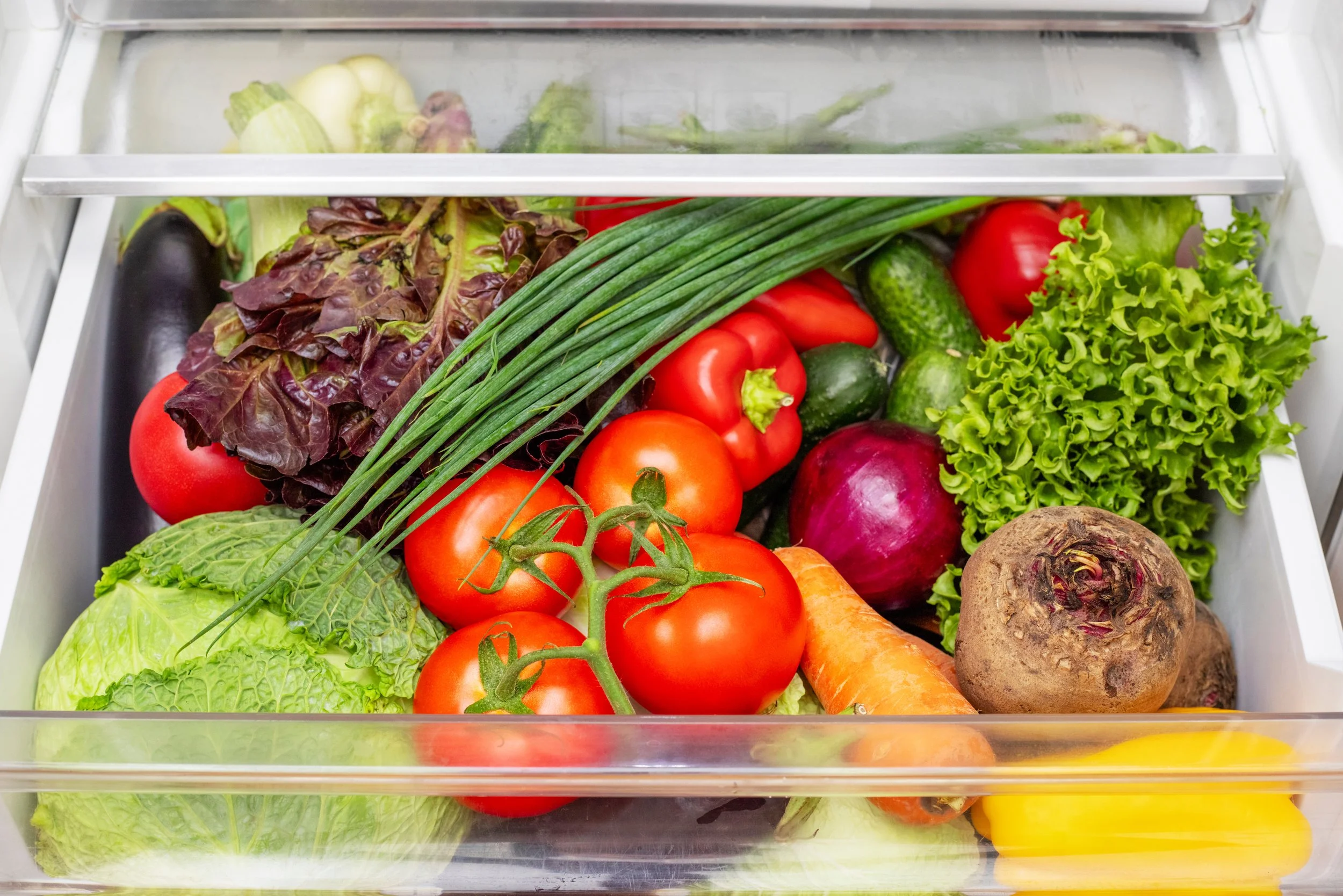Great Ways Store Your Veggies for Maximum Freshness
Eating farm-fresh vegetables is one of life’s greatest pleasures, but keeping them fresh can be a challenge if they’re not stored properly. To make the most of your locally grown produce, here are some best practices for storing vegetables to preserve their flavor, texture, and nutrients.
Refrigerator Storage
Many vegetables thrive in the cool, humid environment of the refrigerator. However, some require specific storage techniques:
Leafy Greens (Lettuce, Spinach, Kale, etc.): Wash, dry thoroughly, and store in an airtight container or a sealed plastic bag with a paper towel to absorb excess moisture.
Carrots, Radishes, and Beets: Remove the tops to prevent them from drawing moisture from the root. Store in a perforated plastic bag in the crisper drawer.
Broccoli and Cauliflower: Keep in a perforated plastic bag in the crisper drawer but avoid sealing them too tightly to allow for air circulation.
Celery: Wrap in aluminum foil and store in the refrigerator for maximum crispness.
Mushrooms: Store in a paper bag in the refrigerator to prevent excess moisture and sliminess.
Room Temperature Storage
Some vegetables fare better when kept at room temperature, away from direct sunlight:
Tomatoes: Store on the counter until fully ripe, then refrigerate if necessary.
Potatoes and Sweet Potatoes: Keep in a cool, dark place like a pantry, but avoid refrigerating, as cold temperatures can alter their texture and flavor.
Onions and Garlic: Store in a well-ventilated, dry, dark place to prevent sprouting.
Winter Squash (Butternut, Acorn, Spaghetti Squash, etc.): Best stored in a cool, dry place away from direct sunlight.
Counter and Refrigerator Combo
Some vegetables start off at room temperature but need refrigeration once ripened:
Avocados: Keep on the counter until ripe, then refrigerate to extend freshness.
Peppers: Store at room temperature if consuming soon, but refrigerate for longer storage.
Cucumbers: Best stored in the refrigerator but away from high-humidity drawers to prevent softening.
Extra Tips for Freshness
Use breathable storage: Avoid sealing most vegetables in airtight containers unless necessary to prevent mold and moisture buildup.
Keep ethylene-sensitive produce away: Certain fruits like apples and bananas release ethylene gas, which speeds up ripening. Store vegetables separately to prevent premature spoilage.
Don’t wash before storage: Washing vegetables before storing them can introduce moisture that promotes spoilage. Instead, wash just before use.
By following these simple storage tips, you can extend the life of your fresh, locally sourced vegetables and enjoy their peak flavor for longer. Happy cooking and happy eating!



